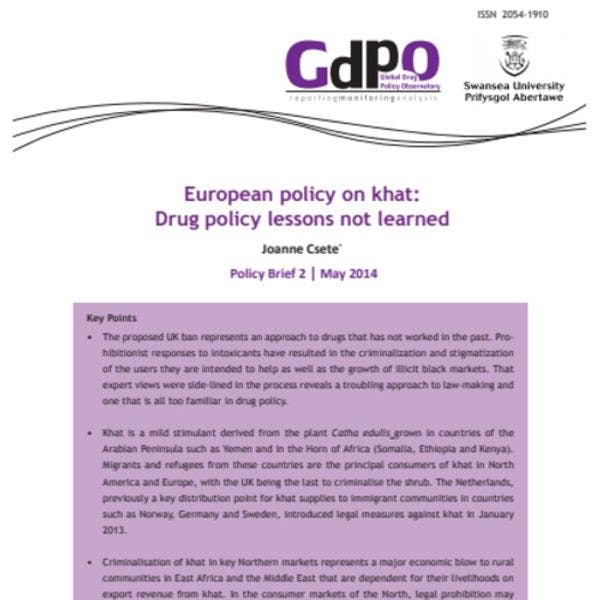Politique européenne sur le khat: les leçons tirées des politiques des drogues n’ont pas été suivies
Les responsables politiques devraient s’inspirer des leçons tirées des politiques qui sont parvenues à réduire les risques liés à l’usage de drogues et des approches souvent inefficaces de maintien de l’ordre.
Pour en savoir plus, veuillez lire les informations ci-dessous (en anglais).
Abonnez-vous à l'Alerte mensuelle de l'IDPC pour recevoir des informations relatives à la politique des drogues.
The proposed UK ban represents an approach to drugs that has not worked in the past. Prohibitionist responses to intoxicants have resulted in the criminalization and stigmatization of the users they are intended to help as well as the growth of illicit black markets. That expert views were side-lined in the process reveals a troubling approach to law-making and one that is all too familiar in drug policy.
Khat is a mild stimulant derived from the plant Catha edulis grown in countries of the Arabian Peninsula such as Yemen and in the Horn of Africa (Somalia, Ethiopia and Kenya). Migrants and refugees from these countries are the principal consumers of khat in North America and Europe, with the UK being the last to criminalise the shrub. The Netherlands, previously a key distribution point for khat supplies to immigrant communities in countries such as Norway, Germany and Sweden, introduced legal measures against khat in January 2013.
Drug policy-makers should benefit from lessons of policies that have succeeded in reducing the harms associated with drug use and repressive law enforcement approaches to drugs.
Keep up-to-date with drug policy developments by subscribing to the IDPC Monthly Alert.
Téléchargements
Sujets
Régions
Profils associés
- Joanne Csete
- Global Drug Policy Observatory (GDPO)
